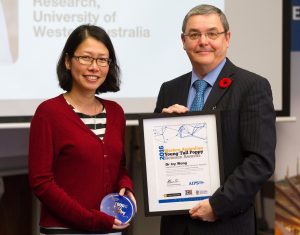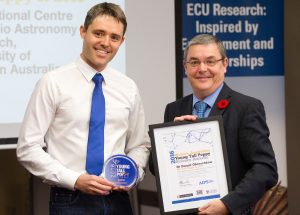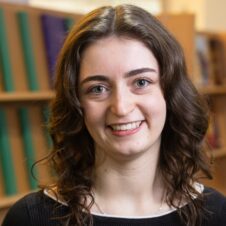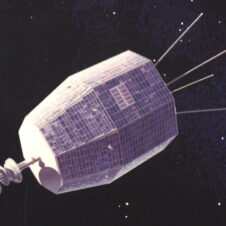Two of ICRAR’s researchers have been recognised in this year’s prestigious Tall Poppy Awards.
Dr Ivy Wong and Dr Danail Obreschkow were presented with the awards at a state ceremony to recognise Western Australia’s best young scientists from disciplines spanning health sciences, plant biology and astrophysics.
 DR Ivy Wong
DR Ivy Wong
Dr Ivy Wong investigates how galaxies form stars and evolve. Recently she has been studying galaxies that live fast and die young, that is, galaxies that have had a very recent burst of star formation but then experience a shut down of star production. By understanding these rare objects Ivy hopes to reveal the physical processes that are currently missing from our theoretical understanding of galaxy formation and evolution.
 Dr Danail Obreschkow
Dr Danail Obreschkow
Observations of the Milky Way have shown that stars are born at a rate of about one new star per year. Yet to account for all the stars above us, galaxies in the past must have been forming stars at a rate 10 to 20 times this. Danail’s research has uncovered the role that galactic rotation plays in star formation. His discovery has closed several big gaps in the theory of galaxy evolution. Dr Obreschkow was also named as Western Australia’s overall Tall Poppy award winner.
The Tall Poppy awards recognise up-and-coming scientists who combine world-class research with a passionate commitment to communicating science. Many Young Tall Poppies go on to achieve even greater things and become inspiring leaders in their field. Dr Obreschkow has produced several apps to promote astronomy to the public and often runs community star-gazing activities. Whilst Dr Ivy Wong leads a highly successful international citizen science project to help identify growing supermassive black holes.
UWA’s Deputy Vice-Chancellor (Research) Professor Robyn Owens said it was wonderful for Dr Obreschkow to be recognised for his contribution to science communication and outreach in Western Australia. “Dr Obreschkow’s work with the community to encourage greater engagement in science makes him a role model for young researchers at UWA,” Professor Owens said.

